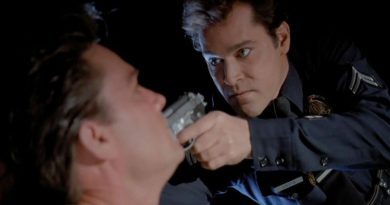Lethal Weapon at 35: Still the Perfect Buddy-Cop Masterpiece
Walter Hill’s 48 Hrs. starring Nick Nolte and Eddie Murphy may have kick-started the buddy-cop subgenre. But as much as I loved that film, it was Lethal Weapon that perfected the aforementioned subgenre, blending gritty action drama with comedy and witty one-liners seamlessly in a well-paced 110-minute length.
Never mind the fact that the buddy-cop subgenre is no longer a hot commodity like it used to be and the film itself has already hit 35 years old this week, it still resonates even today. Every now and then, I would revisit Lethal Weapon and I never get bored of it. It simply has the rewatchability factor no matter how time has changed.
Credits, of course, go to the late Richard Donner’s (who passed away last July at the age of 91) engaging direction with notable inputs from producer Joel Silver and then-novice screenwriter Shane Black, who wrote his first script and sold it for US$250,000 when he was only 23 years old. By comparison, Black’s subsequent success in the screenwriting business made him one of the hottest in-demand Hollywood figures at the time. Case in point included fetching a cool US$1.75 million for The Last Boy Scout and even landing as much as US$4 million for The Long Kiss Goodnight script.
It’s hard to believe this is actually Donner’s first foray into the action genre but he did prove to be adept in transcending different genres prior to Lethal Weapon. This is particularly evident with his versatile works in horror (1976’s The Omen), superhero (1978’s Superman) and adventure (1985’s The Goonies).
Back to Lethal Weapon, the action may devoid of big and spectacular set-pieces seen in the subsequent sequels but Donner directed it with enough verve and style (the elaborate final third act comes to mind). And it works so well because you can feel the stakes, the energy and the emotion of both principal characters (Martin Riggs and Roger Murtaugh) have to go through while they are on the case.
The story itself, which centres on two mismatched L.A. cops working together to bring down a group of drug smugglers, may have been formulaic by today’s standard. But Black brings a distinctive edge to his superb debut screenplay, starting with the way he wrote his cop characters both flawed and likeable enough. The idea of pairing two cops with vastly different personalities is particularly among the key successes that made Lethal Weapon such an unforgettable cinematic experience. Martin Riggs is a loose cannon and a cop with suicidal tendencies because he has a tough time getting over his beloved wife’s death. He has nothing to lose and wouldn’t mind risking his life in the line of duty.
Mel Gibson brings the same signature stoic vibes of his iconic Max Rockatansky role in the Mad Max trilogy to his Martin Riggs character, making excellent use of his piercing eyes and movie-star charisma. No doubt it was one of Gibson’s finest hours and it’s hard to imagine anyone else who could pull off his Martin Riggs role as great as he does.
Well, Clayne Crawford did step in the shoes to play the new Martin Riggs in the ill-advised Lethal Weapon series nobody asked for, even though I was surprised it can last until 3 seasons instead of one. But back then, Mel Gibson wasn’t exactly a shoo-in for the role since there were other potential candidates too, namely Harrison Ford and Bruce Willis. The latter chose to turn down the role and went on to star in Die Hard instead a year later, which also happened to be produced by Joel Silver and the rest, as they say, is history.
Whereas Gibson’s Martin Riggs is a manic cop, the film strikes a great contrast by introducing a complete opposite in the form of Danny Glover’s Roger Murtaugh, who is a by-the-book senior cop with a happy family. Glover is perfect for the role and it’s nice to see how their characters cope with each other as unlikely partners both professionally and personally regardless of dramatic or comedic side. Without the undeniable chemistry that they bring into the film, Lethal Weapon wouldn’t be such an enduring success in the first place.
The film isn’t just content in focusing on the good guys as Black’s screenplay also included two worthy antagonists, with the first one being Mitchell Ryan as General Peter McAllister and most notably, Gary Busey’s unforgettable turn as McAllister’s right-hand man, Joshua. Busey’s character proves to be a perfect foil for Gibson’s Martin Riggs, who is just as equally crazy and intimidating. This would be Busey’s most recognisable role ever and his appearance in Lethal Weapon certainly helped revive his otherwise faltering career at the time. But just like Mel Gibson, the role of Joshua was initially given to John Saxon of Enter the Dragon (1973), A Nightmare on Elm Street (1984) and A Nightmare on Elm Street 3: Dream Warriors (1987) fame. Other candidates like Scott Glenn, James Woods and Christopher Walken were on the list too.
Lethal Weapon became a box office hit upon its initial release on March 6, 1987. It held the number-one spot for three consecutive weeks and brought in a worldwide total of over US$120 million. It even nominated an Oscar for Best Sound but lost to The Last Emperor and the first film’s success has since spawned three sequels in the 90s. Unlike the original, the sequels gradually toned down its gritty aspect in favour of a more mainstream-friendly approach.
The last entry concluded with the uneven Lethal Weapon 4 in 1998 and plans of reviving the franchise were mentioned over the decade. It finally did, however, when Mel Gibson would return to reprise his role and even stepped in as the director for the long-gestating Lethal Weapon 5. But whether or not we see the light of day of its release at the time of writing, we can only wait and see.




